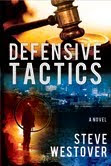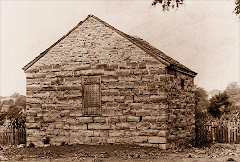
This past Saturday I had the opportunity to attend a training meeting presided over by Elder Russell M. Nelson. Also in attendance were Elder L. Whitney Clayton, Presidency of the Seventy, Elder LeGrand R Curtis Jr, 1st Quorum of Seventy and Elder Deschler, Area Authority Seventy. David Burton, Presiding Bishop had intended on atttending but did not make the trip. Also in attendance were the Independence Missouri Mission President Van Komen and the St. Louis Temple President, Oscarson.
This training was similar to Stake Priesthood Leadership Trainings I've attended in the past with a couple of differences. 1- The trainers were all General Authorities and 2- All attendees were members of Stake Presidencies or Bishops. Approximately 151 Bishops and Stake Presidencies from 11 Stakes were in attendance.
You will not be surprised to hear that the training was a spiritual feast. I was able to meet and be interviewed by Elder Nelson about 1 1/2 years ago when our Stake Presidency was reorganized. You can read about that great experience here. I want to share just a couple of small tidbits.
1- The very first thing he said when he spoke was "Thank you for marrying the girls you married." It was a wonderful expression of love for the women in our lives that make our service possible. Without them we would be unable to serve in the way our Heavenly Father desires us to serve.
2- He trained about being watchmen on the tower, protecting the vinyard and the need to keep balance. We must keep balance in our lives (work, church, family), balance in our time managing the separate affairs of Wards and Stakes and balance in teaching all doctrines of the church.
3- He taught that in counseling with individuals we will spend less time and be more effective if we focus on teaching doctrine to the individual instead of focusing on behavioral changes. This seems obvious in many ways but a very important concept.
4- Elder Claytons spent a good deal of time training from Handbook 2, especially the sections on Melchezidek Priesthood and Quorums.
5- Elder Curtis spoke about the Parable of the Pearl of Great price and the need to remain focused on the Pearl instead of the beautiful box that holds the pearl. We discussed various representations of the pearl and the box.
6- Elder Deschler taught about never comprimising the time required for personal scripture study and prayer. These are a priority. He also spoke about strengthening and empowering Elders Quorum Presidents and High Priest Group Leaders.
7- In response to a question Elder Nelson stated that the church will not equalize Mission expenses for senior couples the way they do other missionary service, but they will begin capping the expense paid by the individual for housing. Any housing expense over $1400 per month will be subsidized through the Church Mission Fund.
8- The purpose of the meeting- We have a Temple that will be dedicated in Liberty by next spring. I expected this meeting would have something to do with the dedication, but it wasn't even mentioned. Elder Nelson stated that these types of meetings will be held in an effort for the Quorum of 12 Apostles to be more visible and have the opportunity to meet more of the Stake and Ward leaders.
This training was a wonderful experience and I enjoyed every minute of it. It was truly amazing how fast 4 hours flew by.



























